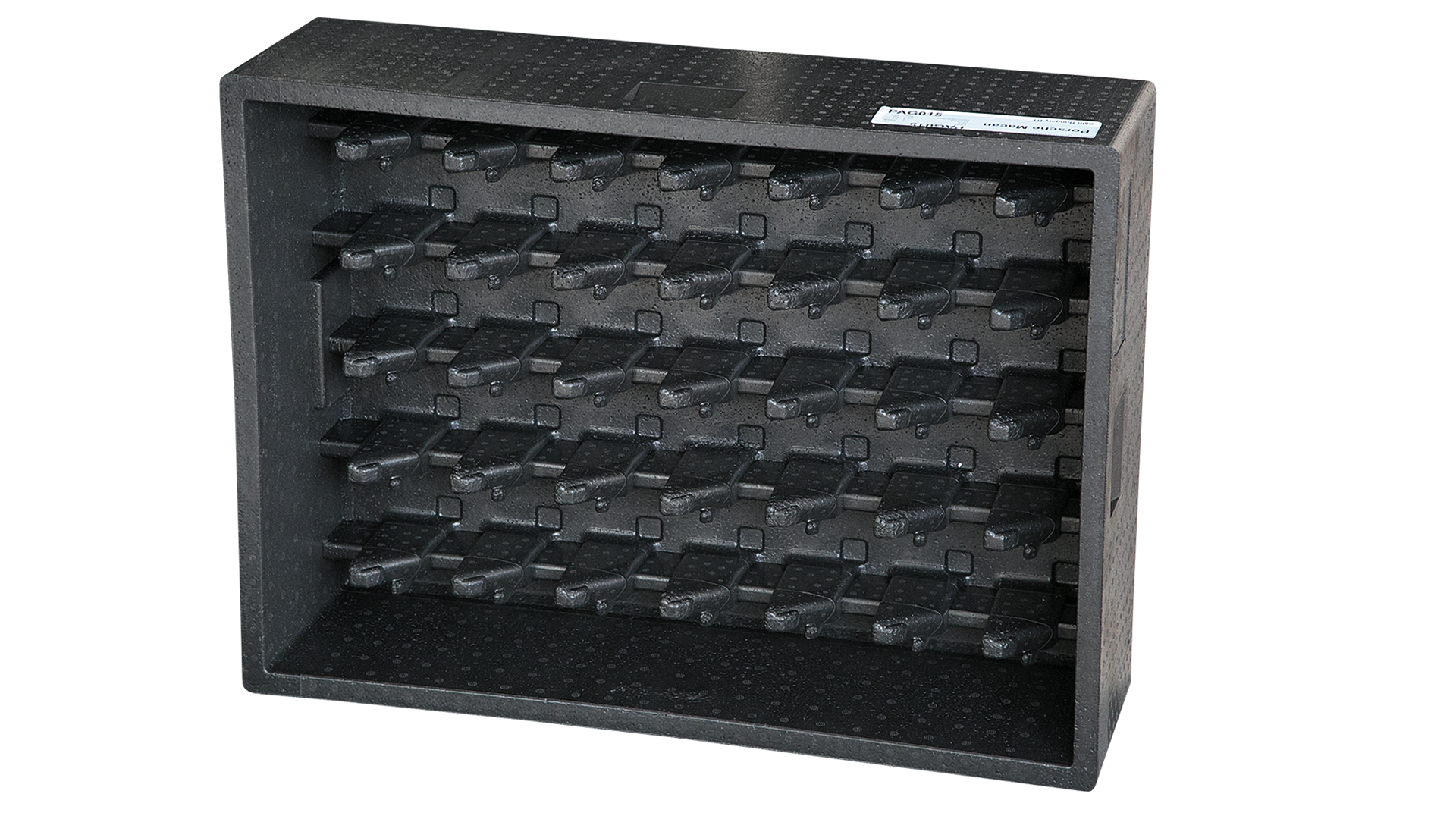DESIGNING SAFE PLASTIC PARTS
One of the major trends in the automotive industry is the design of safe cars that offer improved safety in the case of an accident. To increase passenger protection, automakers are reaching for the best materials. Expanded polypropylene (EPP), as a result of its high mechanical strength and high level of impact energy absorption, is ideally suited as a material for certain components included in the car's passive safety features.
EPP is ergonomic and protects passengers from potential impacts and shocks during accidents. Here are some examples of the use of expanded polypropylene in the production of safety-enhancing plastics parts for cars:
-
Vehicle bumpers
-
Radiator grilles
-
Door panels
-
Car headrests
-
Floor housings
-
Shock absorbers
-
Knee and leg protection components
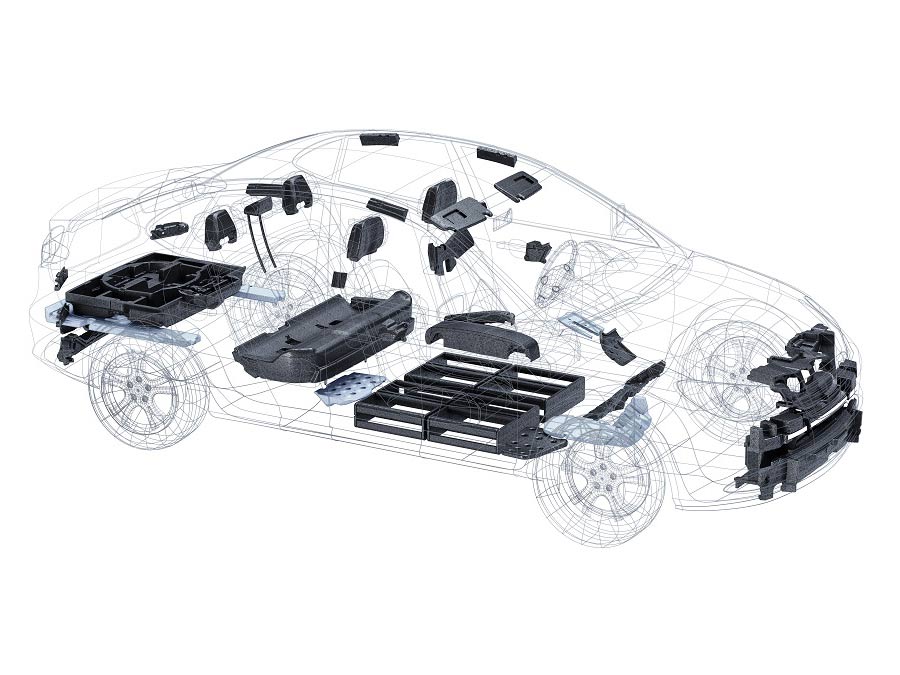
LIGHTWEIGHT AND FLEXIBILITY PLASTIC COMPONENTS
Some car equipment must be adapted to the limited space and weight requirements of vehicles. When designing cars, manufacturers aim to reduce their own weight to reduce fuel consumption and achieve better energy efficiency. In order to meet these requirements, car components must be made increasingly lighter. It is estimated that about 15% of the total vehicle weight is made up of plastic parts.
EPP is a cellular material containing as much as 95% air in its structure, which makes parts made from it extremely lightweight. Designed components made of EPP are very easy to adapt to limited space, as the material allows any shape defined by customer specifications. Perfect examples include headrests and armrests, among others. Expanded polypropylene is available in different densities, allowing automotive manufacturers to choose the optimum hardness of the part depending on its intended use in vehicle construction.
In addition, thanks to the previously mentioned structure with high air content, the material effectively absorbs energy from impact, while exhibiting shape memory (returning to its original form after the pressure subsides).
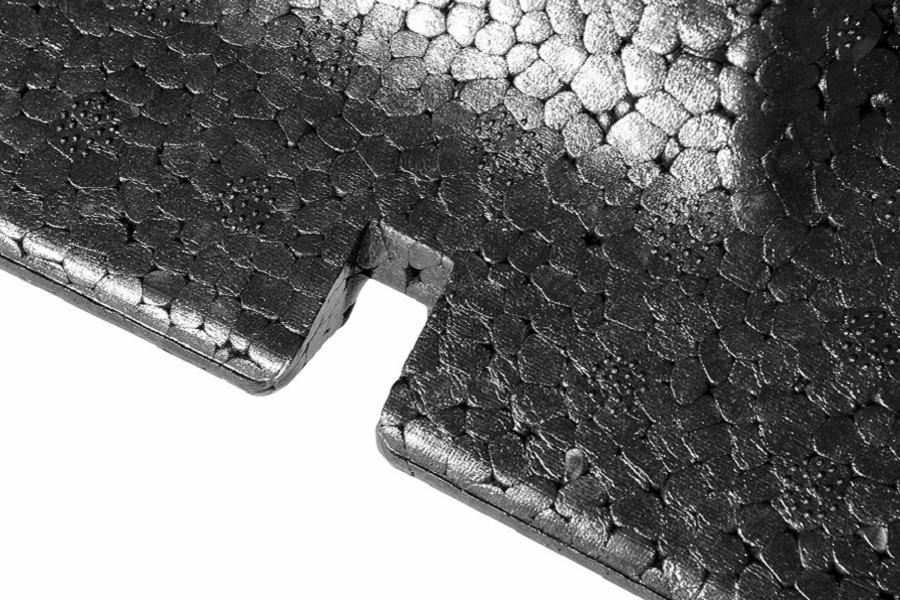
ECOLOGICAL FACTORS AND SUSTAINABILITY
Car companies are increasingly focusing on designing cars with reduced environmental impact, with reduced harmful emissions (this is evidenced by the increased sales of electric cars, which, according to the European Automobile Manufacturers Association – ACEA, are steadily increasing in the European Union).
When considering these issues from an environmental perspective, the selection of appropriate materials is crucial. It is therefore worth noting that foamed polypropylene is a 100% recyclable raw material. It is a mono-material that does not contain volatile organic compounds, substances harmful to the ozone layer and heavy metals. The use of lightweight EPP improves the energy efficiency of cars, allowing a reduction in combustion and emissions. Cars are responsible for 12% of total carbon dioxide emissions in the European Union, data shows.
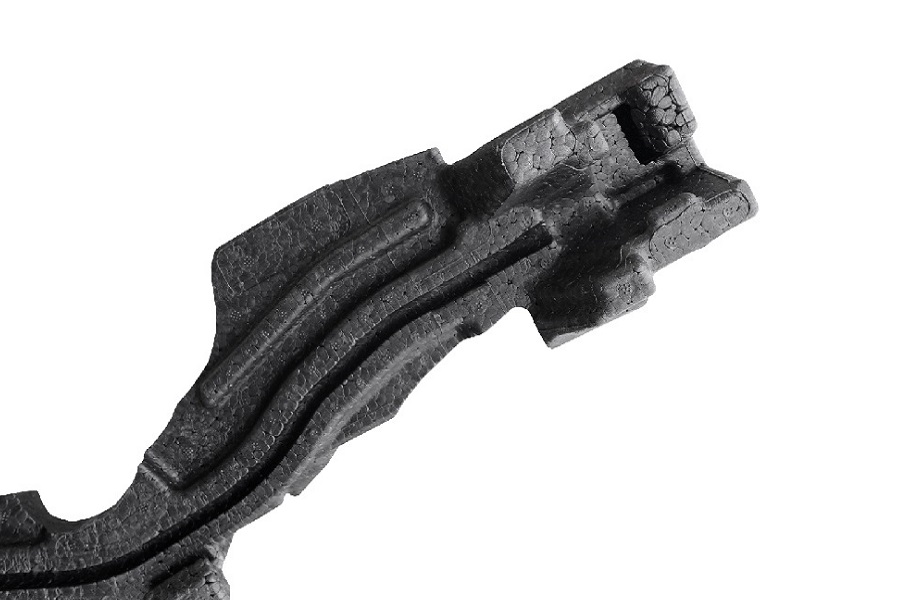
DURABILITY OF AUTOMOTIVE PLASTICS PARTS
Durability of materials is fundamental to providing consumers with a properly functioning, high-quality end product. EPP not only offers high mechanical strength, but also a long service life. The material does not corrode, and its characteristics remain unchanged in contact with water, oils, lubricants and many other chemicals. These qualities make it a widely used material for the production of automotive parts – used both interior and exterior. In addition, it is used for the production of returnable transport packaging, in which car parts are transported and stored.
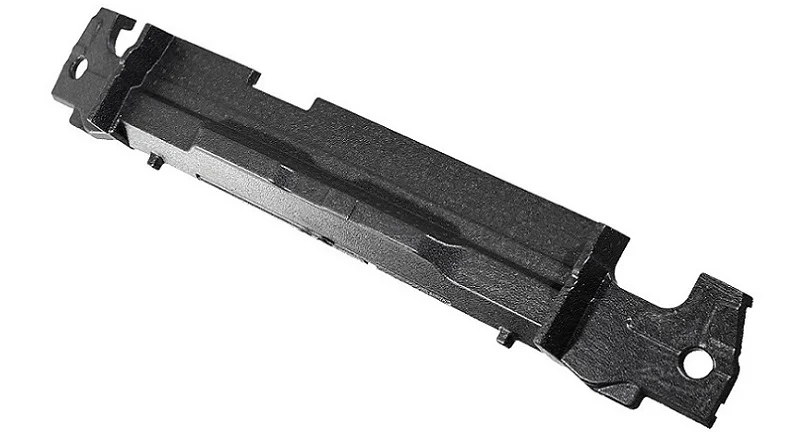
TRANSPORT PACKAGING
Expanded polypropylene foam in the automotive industry is also widely used in the transportation of various automotive components. Transport packaging, thanks to the properties of the EPP material, perfectly protects the transported products, protecting them from damage due to potential shocks and impacts during transportation. Moreover, due to the material's resistance to weather conditions, the packaging can be used repeatedly as rotational packaging.
